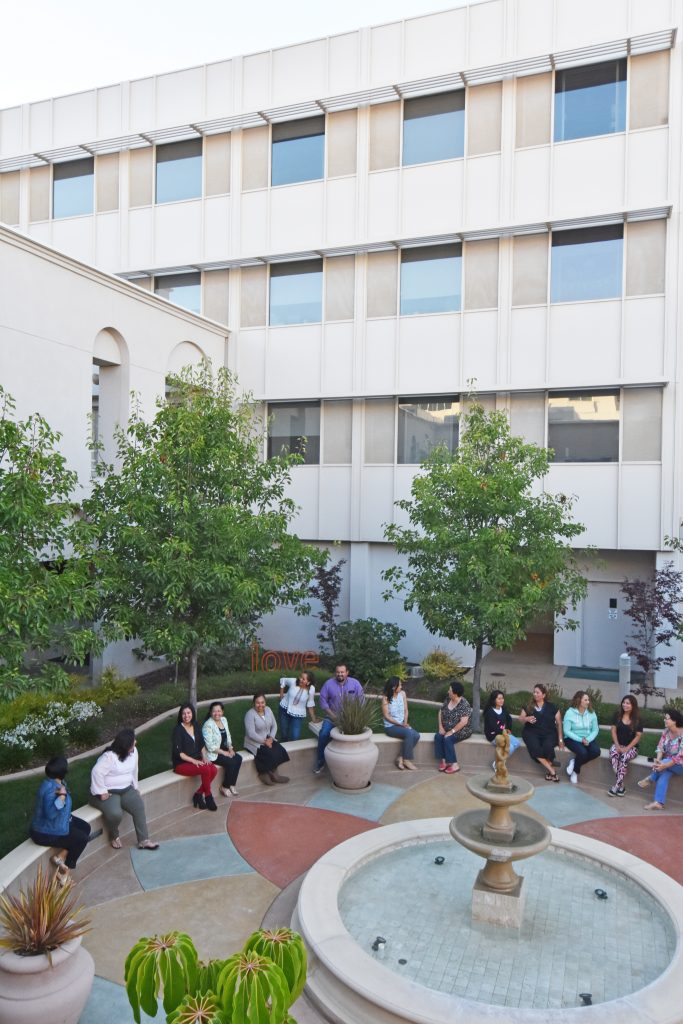BY QUINISHA JACKSON-WRIGHT | FEBRUARY 25, 2019 | LEER EN ESPAÑOL
It started out as a routine home visit between a nurse and high-risk diabetes patient. The nurse went through her checklist, asking the patient if she had checked her blood sugar and eaten breakfast that morning. When the patient casually mentioned that she hadn’t, the nurse gently but firmly reprimanded her.
“Do you understand that you are facing serious health complications?” she asked. “If you don’t take proper care of yourself, things will only get worse.”
The patient appeared to be unfazed. Seconds passed until Promotora Josefa Rios, spoke up. She had been asked to stand in as a translator for the Spanish-speaking patient and English-speaking nurse. She could sense the tension building in the room, and had an instinct there was more going on than what met the eye.

“May I ask her a question?” Rios requested. The nurse agreed. Rios then turned to the patient.
“How are you?” she asked in Spanish. The patient hesitated before saying she was fine.
“No really…how are you?” Rios pressed. The woman’s eyes filled with tears as she finally revealed the family and financial hardships she was facing, that left her with little time or means to address her physical health. This exchange of information was given in Spanish, and the nurse was stunned when Rios translated the message.
With a better understanding of the woman’s circumstances, Rios was able to coordinate with the nurse to offer assistance. Because of stories such as the one Rios describes, she and her colleague, Health Linkages Coordinator MaryEllen Rehse, believe the Santa Barbara County Promotores Network is a much-needed staple in the community. With the number of Spanish-speaking residents growing rapidly, Rios and Rehse say it is crucial to ensure language barriers do not prevent residents from receiving proper care.

The SBC Promotores Network consists of individuals in Santa Barbara County with extensive knowledge of area health and wellness resources. Promotores have a desire to bridge the gap between Spanish-speaking residents and service providers who struggle to communicate effectively with this under-represented demographic.
Although key to their role, Promotores are not just translators. “These are men and women who have been well-trained,” Rehse said. “To become a Promotora, there is a required 48-hour core training [over the course of several days], and monthly meetings. But even before going through this training, these are people who know where to find help, what’s new in the community, and they get the word out to those who otherwise wouldn’t know about specific resources.”
Rios says there are approximately 88 active Promotores in Santa Barbara County. Because of the unique skillset that Promotores possess, many have gone on to apply their skills in full-time positions within other organizations.
“Even if members aren’t active in the core group, it’s a great opportunity for people who know the community, to move into larger roles and expand their impact,” Rehse explained.
“That’s what we like to see,” Rios added. “We have Promotores who have been hired on at other organizations, or were motivated to continue their education and become social workers because they want to see more Spanish-speaking social workers in the community.”
When asked how the organization plans to increase community outreach, Rios says she wants to collaborate with other agencies in Santa Barbara County, and get everyone onboard with providing necessary services to residents.
“I think we [and other agencies] have a similar mission, but if we build stronger connections with each other, we can create the social change that we all want to see,” she said.
One of these collaborations will be with Cottage Hospital, to assign Promotores to assist case managers in scenarios similar to what Rios experienced.
“The Promotores will go to the hospital and be available to the case management nurses,” Rehse said. “This way, nurses can set up appointments for [Promotores] to meet with patients before they’re discharged, and follow up with the patients when they return home. This will be a team effort to help in cases where there may be cultural or language barriers.”
For more information on the Promotores and upcoming events, visit the SBC Promotores Network website and follow on Facebook.